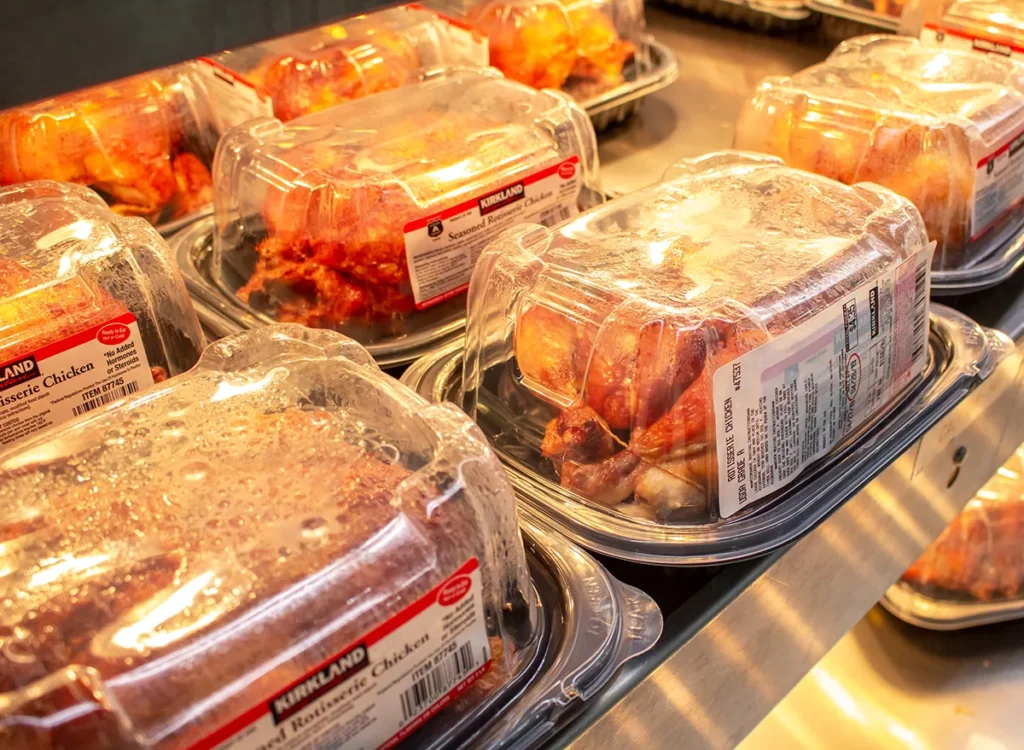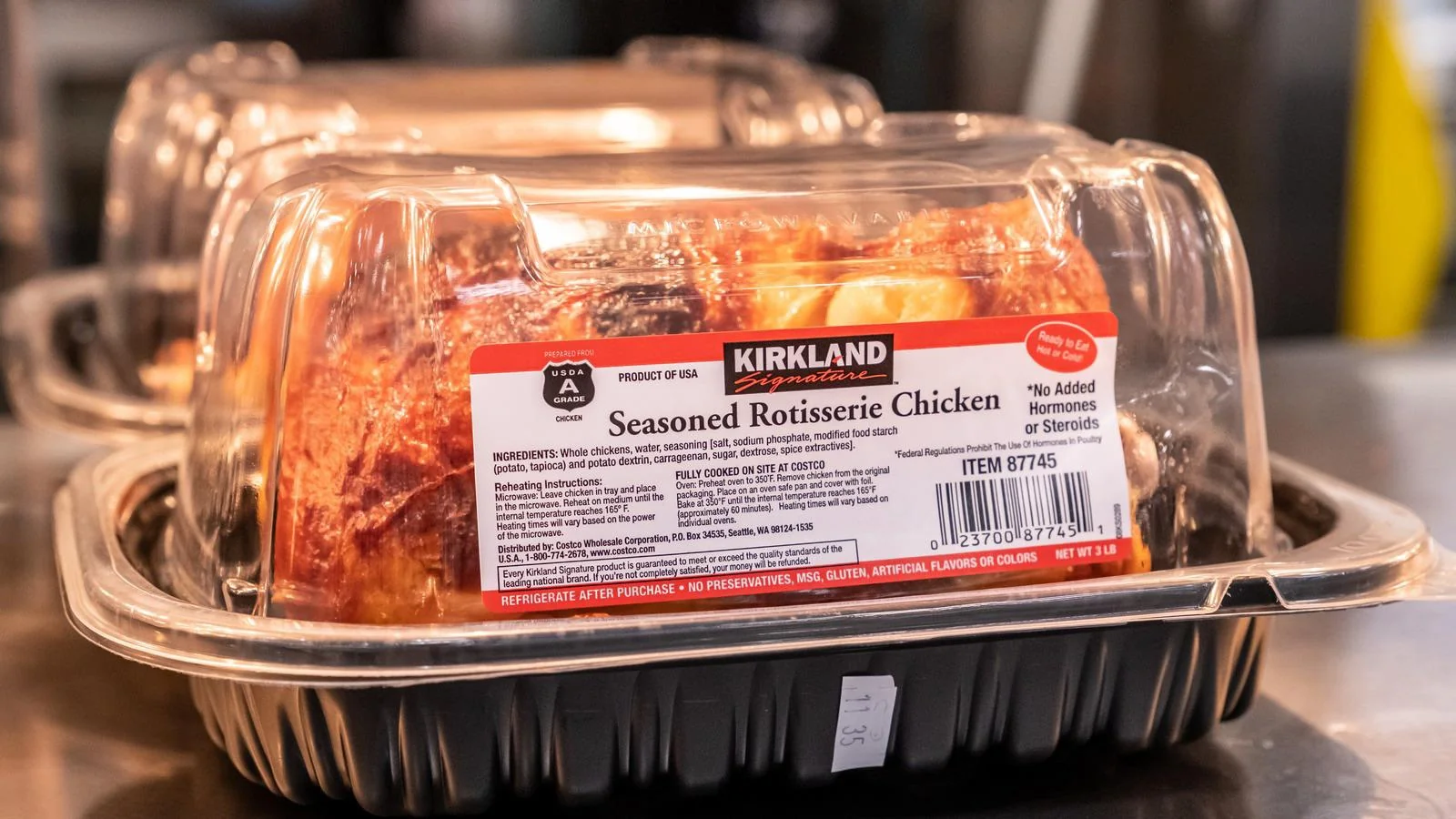How Costco Rotisserie Chicken Nutrition Impacts Your Diet
The Costco rotisserie chicken nutrition is a very famous meal choice. People like it because of its ease and good taste. But, you should think about the nutritional effect on your diet too. Each chicken has around 900 calories and 60g of protein.
So it can be a notable part of what you eat every day. The high level of protein makes it a good source for nutrition, but the sodium and phosphates added to it can be harmful to certain people. Also, the high amount of saturated fat might raise chances for heart disease.
Nutritional Benefits of Rotisserie Chicken
Costco rotisserie chicken nutrition is a healthy option for getting the proteins your body needs, and it also has many important vitamins and minerals. It contains high amounts of protein with every 3-ounce serving giving around 19-22 grams.
This type of chicken is an important source for several key nutrients such as niacin, selenium, riboflavin, vitamin B12, phosphorus and zinc. Rotisserie chicken has a good balance of nutrients, which makes it a healthy and helpful part of someone’s eating plan.
Comparison to Other Protein Sources
Costco rotisserie chicken nutrition contains good amounts of protein and can be seen as a favorable option compared to other sources of proteins.
When matched against chicken breast, rotisserie chicken carries more fat but is less in calories and carbohydrates. In comparison to fried chicken, rotisserie one has significantly lesser amounts of calories and fat, making it healthier in general.
Moreover, rotisserie chicken offers a significant amount of different vitamins and minerals. It’s rich in niacin, selenium, riboflavin, vitamin B12, phosphorus and zinc which adds to its value as a part of a balanced eating plan.
Potential Drawbacks
Costco rotisserie chicken nutrition can have some additives like sodium and phosphates. Sodium amount in some rotisserie chickens might be high, for example the rotisserie chicken from Costco has 460mg of sodium per every 3-ounce serving.
Sodium-based additives such as sodium tripolyphosphate are frequently used to enhance the taste, consistency, and cooking duration of rotisserie chickens.
For individuals dealing with conditions such as chronic kidney disease, high blood pressure, or lessened bone health, these additives may prove troublesome as they require careful observation of sodium and phosphorus consumption.
Also Read: Maruchan Ramen Nutrition Facts Revealed
How to Choose Healthy Rotisserie Chicken
In picking rotisserie chickens that contain less additives, it is very important to thoroughly read the ingredient labels and consult with deli managers about what goes into their products.
Prefer a short list of ingredients which includes familiar, genuine foods such as chicken, salt and spices. Stay away from additives like sodium phosphate, refined oils and natural flavorings.
Moreover, look for certifications such as “no antibiotics” or “no added growth hormones.” According to the FDA’s food labeling regulations for hot rotisserie chickens, it is necessary that the list of ingredients can be seen on the exterior part of the package. This permits buyers to select wisely regarding what additives are present in their rotisserie chicken.

Using Rotisserie Chicken in Meals
Costco rotisserie chicken nutrition ingredients can be used in many meals. You can put it into salads, tacos or soups for a taste of protein. First, you shred the chicken to use in a salad with mixed greens, cherry tomatoes and dressing of your liking.
If you are making tacos, shred the chicken and season it with lime juice, cumin and chili powder. Put this mix into a taco shell along with your chosen toppings.
For soups, cut up the chicken into small pieces and put them in a strong broth full of vegetables and noodles for an enjoyable meal. Moreover, remaining rotisserie chicken is versatile enough to be used creatively like producing sandwiches of chicken salad or creating dishes such as quesadillas with cheese melted over seasoned pieces of poultry or pot pie containing flaky crusts filled by creamy sauce mixed together among chunks from cooked bird.
Rotisserie Chicken Nutrition Facts
Rotisserie chicken, being a lean protein, gives around 120-140 calories in each serving of 3 ounces. It contains 2.5-7 grams of fat, 0.5-2 grams of carbohydrates and has about 19-22 grams protein per serving size (University Health News). When we compare this to other kinds of proteins such as chicken breast and fried chicken, rotisserie chicken contains more fat but less calories and carbs on average.
It also includes a few important vitamins and minerals like niacin, selenium riboflavin vitamin B12 phosphorus zinc according to the Department of Agriculture National Nutrient Database for Standard Reference.
Tips for Managing Nutrition with Rotisserie Chicken
For Costco rotisserie chicken nutrition, the important thing is to regulate calorie, fat and protein consumption to keep a balanced diet. You can do this by choosing light meat as it has less fat and calories than dark meat. Also, think about eating the skin because it is good for protein and makes you feel full.
Considering the Costco rotisserie chicken nutrition’s value is a complicated matter. It brings health advantages, but also contains additives that might be problematic for some people’s well-being.




